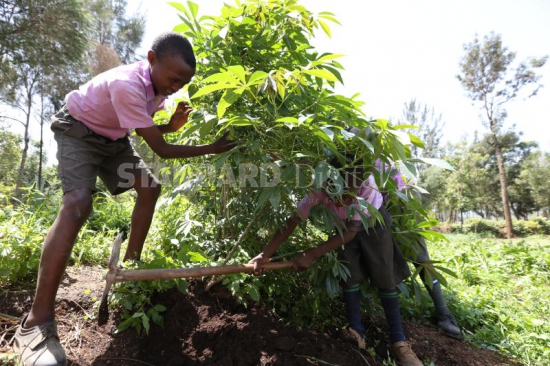×
The Standard e-Paper
Kenya’s Boldest Voice

NAIROBI: Over the recent years, agriculture has increasingly lost its allure among school going students. Large numbers of students — especially those in rural areas — would want to leave the village and head to the cities after school.